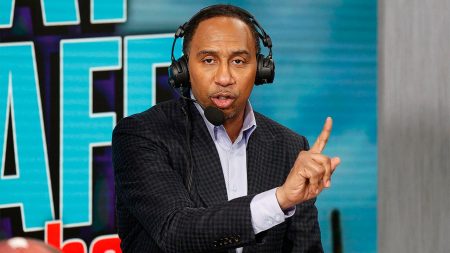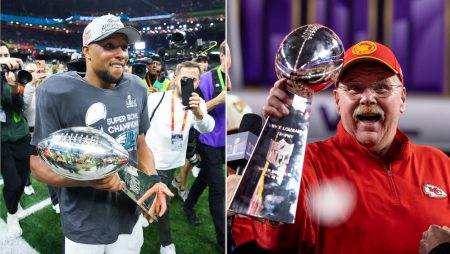Jake Paul, the YouTuber turned boxer, has consistently courted controversy throughout his unconventional boxing career, often choosing opponents significantly older than himself. This strategy, while generating considerable buzz and publicity, has also drawn heavy criticism from boxing purists and fans alike. His recent bout against 58-year-old Mike Tyson, a boxing legend 31 years his senior who hadn’t fought professionally since 2005, epitomizes this approach. The age disparity and Tyson’s extended absence from the ring fueled speculation about the legitimacy of the fight, with many questioning whether it was a genuine contest or a staged spectacle designed to generate revenue. Paul, seemingly unfazed by the skepticism, leaned into the controversy, even jokingly suggesting a 392-year-old shark as his next opponent on social media, a move indicative of his tendency to embrace and even amplify the criticism directed at him.
The fight against Tyson followed a similar pattern established in Paul’s previous bouts, notably his match against former UFC champion Anderson Silva. Silva, though still considered a formidable opponent, was 47 years old at the time of the fight, a full 22 years older than Paul. This recurring selection of older opponents raises questions about Paul’s intentions within the boxing world. Is he genuinely seeking to test his skills against the best, or is he strategically choosing opponents who, while still recognizable names, are past their prime, thereby increasing his chances of victory and bolstering his boxing record? This strategy, while arguably shrewd from a business perspective, undermines the sporting integrity of his fights and contributes to the perception that his boxing career is more about spectacle than genuine athletic competition.
Despite the persistent doubts surrounding the legitimacy of his fights, Paul and his promotion company, Most Valuable Promotions (MVP), vehemently deny any accusations of staging or rigging. Following the Tyson fight, MVP co-founder Nakisa Bidarian addressed the allegations head-on, emphasizing the stringent regulations and oversight governing professional boxing. He highlighted the involvement of the athletic commission, which sanctioned the fight, and Netflix, a major public company, which partnered in broadcasting the event. Bidarian argued that rigging a fight of this magnitude would constitute a federal crime, exposing all involved parties, including himself, Paul, Tyson, and Netflix executives, to severe legal consequences. He underscored the absurdity of such a scenario, stating that they would be risking their entire company and lives to stage a fight, a risk that far outweighs any potential financial gain.
Furthermore, Bidarian pointed to the postponement of the fight due to Tyson’s ulcer as further evidence of its authenticity. He reasoned that if the fight were staged, there would be no need for a postponement; they could have simply proceeded with the original date, knowing that the outcome was predetermined. The fact that they delayed the fight to allow Tyson to recover, he argued, demonstrates the genuine nature of the competition and the commitment of both fighters to performing at their best. He categorically asserted that the fight was “100% real from beginning to end.” The postponement, according to Bidarian, reinforces the fact that both fighters were treating the bout as a legitimate competition, further invalidating accusations of it being staged or rigged.
The controversy surrounding Paul’s boxing career highlights the tension between entertainment and athleticism in modern combat sports. While Paul’s unconventional approach undeniably generates significant interest and revenue, it also raises questions about the legitimacy of his achievements and his long-term impact on the sport. His choice of opponents, coupled with his background as a YouTuber and social media influencer, contributes to the perception that his focus is more on entertainment value than genuine athletic competition. This approach, while financially successful, risks alienating dedicated boxing fans and potentially diminishing the sport’s credibility. The debate over the authenticity of Paul’s fights and his overall contribution to boxing will likely continue as he progresses in his career.
Ultimately, the question remains: is Jake Paul a legitimate boxer seeking to prove himself in the ring, or is he a savvy entertainer using boxing as a platform to further his brand and generate revenue? His willingness to fight older opponents, his embrace of controversy, and his background in online entertainment contribute to the skepticism surrounding his boxing pursuits. While his team strongly refutes allegations of staged fights, the doubts persist, raising broader questions about the evolving landscape of professional boxing and the role of entertainment in shaping its future. Only time will tell whether Paul’s boxing career will be remembered as a genuine sporting endeavor or a carefully orchestrated spectacle. The future trajectory of his career will ultimately determine how he is perceived within the boxing world and how his contributions to the sport are evaluated.










